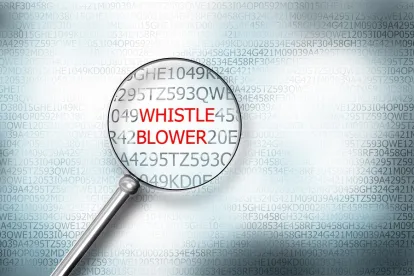This week, the United States Supreme Court heard oral argument in Digital Realty Trust, Inc. v. Somers to consider whether the Dodd-Frank Act (“Dodd-Frank”) protects internal whistleblowers and, more broadly, regulatory agencies’ power to interpret federal statutes. The Court’s decision could impact an employer’s ability to terminate employees who report concerns of malfeasance internally, and give agencies the power to circumvent Congress’ legislative authority.
In Digital Realty, the employer terminated an employee after he internally reported alleged corporate malfeasance. The employee then filed suit, claiming that his termination violated Dodd-Frank’s anti-retaliation provision.
Dodd-Frank prohibits retaliation against a “whistleblower” – defined as any individual who provides information relating to a violation of securities laws to the Securities and Exchange Commission (“SEC”), in a manner established, by rule or regulation, by the SEC.
In 2011, the SEC interpreted Dodd-Frank’s “whistleblower” definition to include those who make internal reports. The SEC’s interpretation is impactful – since 2012, 83% of whistleblowers who have received judgments first reported internally to their company and then later to the SEC.
The employer in Digital Realty moved to dismiss the employee’s Dodd-Frank retaliation claim, arguing that Dodd-Frank only protects those who provide information to the SEC and not those who internally report violations. The district court denied the employer’s motion and the Ninth Circuit affirmed.
If the Supreme Court agrees with the Ninth Circuit, employers may be subjected to further litigation when terminating employees who have internally reported concerns related to Dodd-Frank. Moreover, regulatory agencies could perceive they have greater leeway to interpret legislation. As political affiliations within agencies change, so too could the agencies’ interpretations of statutes. Under such a scenario, employers would need to pay close attention to agency interpretations to minimize legal exposure.
Conversely, the Court could strictly interpret Dodd-Frank and limit agencies’ powers, giving strength and certainty to express legislative enactments. Regardless, employers should be mindful of the Court’s Digital Realty decision because it will impact whistleblower litigation and may provide a preview to this Court’s treatment of future employment law cases.




 />i
/>i

